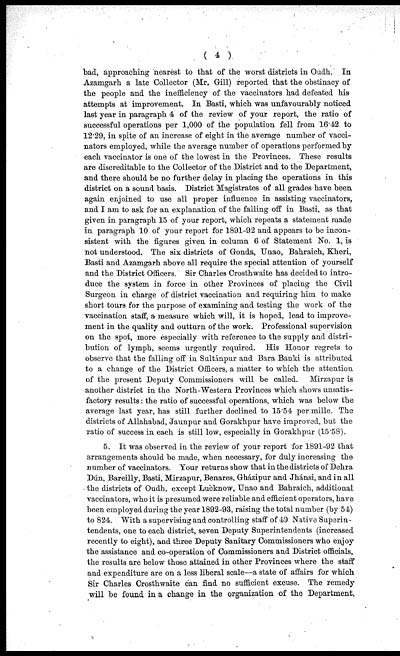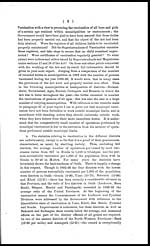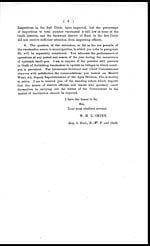Medicine - Vaccination > 1866-1901 - Annual report upon vaccination in the North-Western Provinces > Vaccination North-Western Provinces and Oudh 1878-1895 > 1892-1893 - Annual report on vaccination in the North-Western Provinces and Oudh for the year 1892-93
(287) Page 4
Download files
Individual page:
Thumbnail gallery: Grid view | List view

( 4 )
bad, approaching nearest to that of the worst districts in Oudh. In
Azamgarh a late Collector (Mr. Gill) reported that the obstinacy of
the people and the inefficiency of the vaccinators had defeated his
attempts at improvement. In Basti, which was unfavourably noticed
last year in paragraph 4 of the review of your report, the ratio of
successful operations per 1,000 of the population fell from 16.42 to
12.29, in spite of an increase of eight in the average number of vacci-
nators employed, while the average number of operations performed by
each vaccinator is one of the lowest in the Provinces. These results
are discreditable to the Collector of the District and to the Department,
and there should be no further delay in placing the operations in this
district on a sound basis. District Magistrates of all grades have been
again enjoined to use all proper influence in assisting vaccinators,
and I am to ask for an explanation of the falling off in Basti, as that
given in paragraph 15 of your report, which repeats a statement made
in paragraph 10 of your report for 1891-92 and appears to be incon-
sistent with the figures given in column 6 of Statement No. 1, is
not understood. The six districts of Gonda, Unao, Bahraich, Kheri,
Basti and Azamgarh above all require the special attention of yourself
and the District Officers. Sir Charles Crosthwaite has decided to intro-
duce the system in force in other Provinces of placing the Civil
Surgeon in charge of district vaccination and requiring him to make
short tours for the purpose of examining and testing the work of the
vaccination staff, a measure which will, it is hoped, lead to improve-
ment in the quality and outturn of the work. Professional supervision
on the spot, more especially with reference to the supply and distri-
bution of lymph, seems urgently required. His Honor regrets to
observe that the falling off in Sultánpur and Bara Banki is attributed
to a change of the District Officers, a matter to which the attention
of the present Deputy Commissioners will be called. Mirzapur is
another district in the North-Western Provinces which shows unsatis-
factory results: the ratio of successful operations, which was below the
average last year, has still further declined to 15.54 per mille. The
districts of Allahabad, Jaunpur and Gorakhpur have improved, but the
ratio of success in each is still low, especially in Gorakhpur (15.58).
5. It was observed in the review of your report for 1891-92 that
arrangements should be made, when necessary, for duly increasing the
number of vaccinators. Your returns show that in the districts of Dehra
Dún, Bareilly, Basti, Mirzapur, Benares, Gházipur and Jhánsi, and in all
the districts of Oudh, except Lucknow, Unao and Bahraich, additional
vaccinators, who it is presumed were reliable and efficient operators, have
been employed during the year 1892-93, raising the total number (by 54)
to 824. With a supervising and controlling staff of 49 Native Superin-
tendents, one to each district, seven Deputy Superintendents (increased
recently to eight), and three Deputy Sanitary Commissioners who enjoy
the assistance and co-operation of Commissioners and District officials,
the results are below those attained in other Provinces where the staff
and expenditure are on a less liberal scale—a state of affairs for which
Sir Charles Crosthwaite can find no sufficient excuse. The remedy
will be found in a change in the organization of the Department.
Set display mode to: Large image | Zoom image | Transcription
Images and transcriptions on this page, including medium image downloads, may be used under the Creative Commons Attribution 4.0 International Licence unless otherwise stated. ![]()
| Permanent URL | https://digital.nls.uk/87227206 |
|---|
| Attribution and copyright: |
|
|---|




